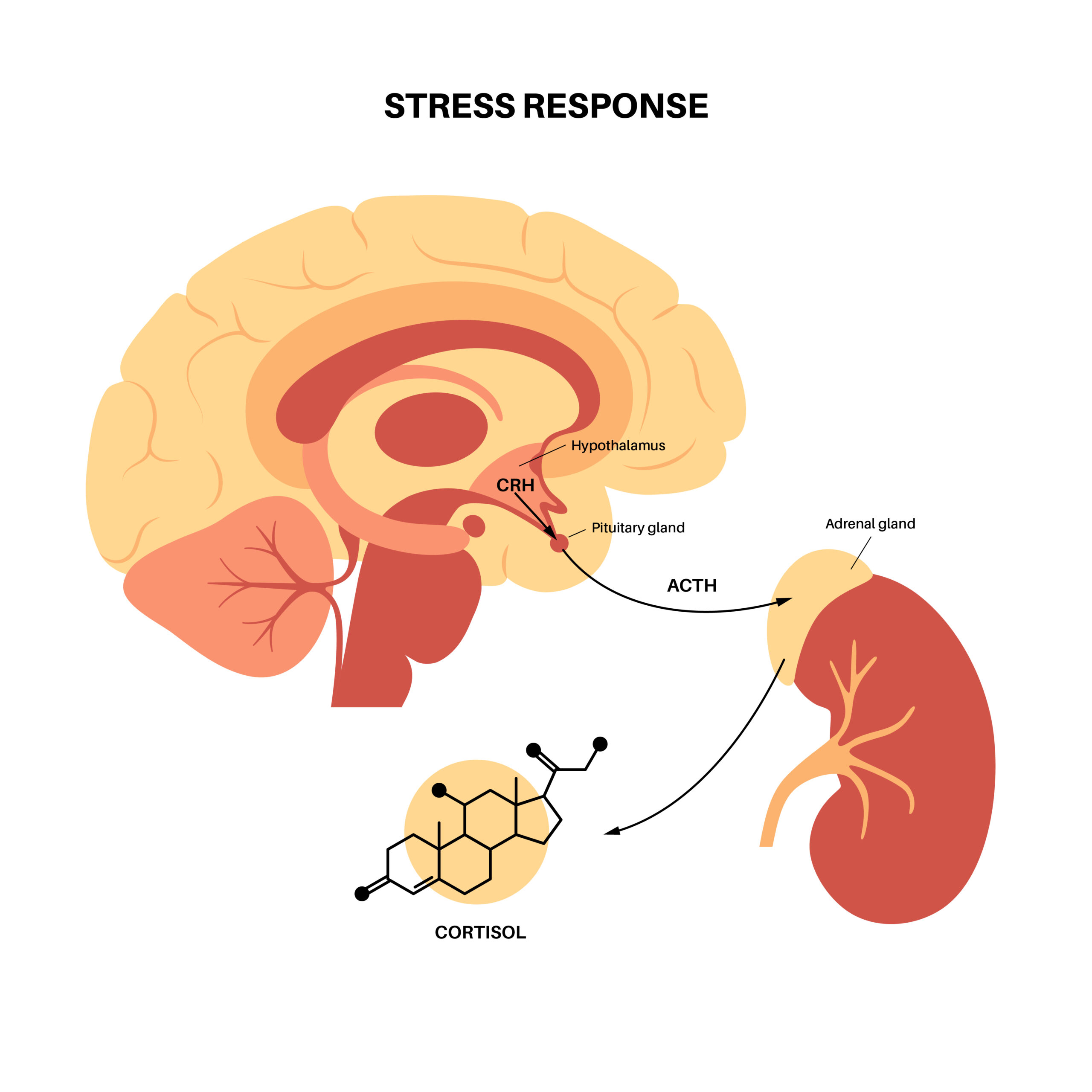So you thought menopause would be a walk in the park? Think again. Fatigue is a common … and often debilitating … symptom of menopause.
It’s not just about feeling tired, it’s about feeling drained, even after a good night’s sleep. This persistent exhaustion can be influenced by hormonal changes, lifestyle factors, and even your mental health.
But don’t worry, you’re not powerless in this. By understanding the causes and effects of menopause fatigue, you can take steps to reclaim your energy and zest for life.
Let’s get into the nitty-gritty of menopause fatigue and how you can combat it.
Dr. Gala’s Quick Take
Menopause fatigue feels like a deep, overwhelming tiredness that doesn’t go away even after resting, affecting both physical and mental energy. And yes, we can beat fatigue in menopause by having regular exercise, a healthy diet, stable sleep patterns, and limiting caffeine and alcohol intake.
Understanding Menopause Fatigue
Understanding the complexity of menopause fatigue begins with recognizing its impact on your daily life. It’s not just about physical tiredness but also includes emotional exhaustion and reduced motivation. As you navigate the challenges of menopause, the symptoms may feel overwhelming. But, knowledge is your weapon, and understanding the causes and effects of these menopausal symptoms gives you back control.
Menopause fatigue is one of the most common symptoms of menopause, and it’s primarily a result of changing hormone levels. The fluctuations in your estrogen and progesterone levels can disrupt your sleep patterns, leading to unrelenting exhaustion. This constant fatigue can drain your energy, sap your motivation, and affect your emotional well-being.
But, you can manage this fatigue. Lifestyle changes are key: regular exercise, maintaining a consistent sleep schedule, and modifying your diet can all help. Hormone replacement therapy is often suggested but it introduces additional risks and side effects.
Dealing with Menopause Fatigue
You’re no stranger to problem-solving but coping with the overwhelming fatigue that menopause can bring may have you questioning your superpowers.
It’s vital to identify the physical and mental impacts this symptom can have on your daily activities.
Let’s discuss some effective strategies for managing these symptoms and improving your overall quality of life.
Identifying Fatigue Symptoms
During your transition through menopause, it’s key to recognize the symptoms of fatigue, such as physical tiredness, mental exhaustion, increased need for rest, and a decrease in motivation and productivity. Identifying fatigue symptoms is your first step in reclaiming your vitality.
You might notice you’re feeling lethargic, sluggish, and can’t concentrate like you once could. It’s more than just everyday tiredness. These are signs your body is struggling with the changes menopause brings. Listen to your body. It’s telling you it needs support.
By identifying these symptoms, you’re empowering yourself to take action. With this knowledge, you can strategize effective ways to manage fatigue.
Next, we’ll consider the physical impact of fatigue, helping you understand how it affects your body’s function.

Physical Impact of Fatigue
When dealing with menopause fatigue, it’s crucial to comprehend the physical toll it takes on your body. It’s not just a feeling of being drained. This fatigue can seriously impact your everyday life. Here’s what you might experience:
- Persistent tiredness, despite adequate sleep
- Difficulty concentrating due to exhaustion
- Aches and pains, further disrupting sleep
- Decreased motivation and energy for daily activities
Remember, you’re not alone. Menopause challenges every woman to some extent. Hormone fluctuations cause fatigue and can disrupt your sleep, making you feel constantly tired.
It’s essential to recognize these physical disruptions and find appropriate solutions. Stay strong and take control of your menopause fatigue. You have the power to manage this stage of your life effectively.
Mental Effects of Fatigue
Menopause fatigue takes a mental toll on you. This fatigue doesn’t just drain your physical energy, it also impacts your psychological well-being.
The mental effects of fatigue can manifest as brain fog and mood changes, which are psychological changes associated with menopause fatigue. You may find yourself struggling with concentration, or becoming short-tempered due to lower levels of progesterone.
These changes can be as challenging as the physical ones, but knowledge is power. Counseling may help if these symptoms interfere with your daily life.
Fatigue and Daily Activities
While you’re grappling with menopause fatigue, you might find your daily activities becoming increasingly more challenging. This menopausal fatigue can disrupt your daily life, making even simple tasks feel like an uphill battle.

To help you regain your power, try the following strategies:
- Engage in regular, moderate exercise. This can improve your sleep quality and help manage your menopause symptoms.
- Create a comfortable sleep environment. Keep your room cool, quiet, and dark.
- Limit your caffeine intake. It can interfere with your sleep.
- Set realistic goals for your day. Don’t overextend yourself.
Coping With Fatigue Symptoms
To effectively cope with menopause fatigue, you’ll need to adopt strategies that can help manage your symptoms and enhance your overall well-being.
Embrace the changes in your body and use them as a catalyst for positive transformation. This is an opportunity for renewal.
It bears repeating …
Regular exercise can be a game-changer, boosting your energy and mood while improving sleep quality.
Incorporating soy-rich foods in your diet helps to balance hormones.
Cultivating a healthy sleep routine reduces stress.
Ditching caffeine and alcohol reduces symptom triggers.
A consistent sleep schedule and relaxation techniques can counteract menopausal fatigue and psychological changes.
Fatigue due to menopause is real. With effective coping strategies, you can reclaim your vitality and power.
The Hormonal Link to Fatigue
You’re likely experiencing menopause fatigue due to hormonal fluctuations disrupting your sleep patterns and energy levels.

Your body is going through drastic changes and is consuming extra energy. The hormonal link to fatigue is primarily tied to two key hormones … estrogen and progesterone.
During menopause, your body’s production of estrogen and progesterone decreases. These hormones play a significant role in regulating your sleep and the decline can lead to fatigue. Here’s how:
- Estrogen helps regulate the stress hormone cortisol. As levels drop, your stress response might increase, resulting in fatigue.
- Chronic stress makes the stress response sluggish. This is often related to adrenal fatigue that has been simmering for a long time. The demands of menopause are the “straw that broke the camel’s back.” Menopause symptoms are proportionate to the level of adrenal fatigue caused by chronic stress.
- Progesterone promotes sleep. Less of it can result in insomnia and subsequent tiredness.
- These hormones protect against sleep disturbances like hot flashes and night sweats. With less protection, these disturbances can disrupt your sleep and cause fatigue.
- The overall hormonal instability during menopause can lead to fatigue.
Understanding the hormonal link to experiencing fatigue during menopause empowers you to take action. By knowing what’s happening in your body, you can better manage your symptoms and maintain your power during this significant life transition.
Factors Influencing Menopause Fatigue
You might be wondering what exactly influences menopause fatigue. The added stress brought on by midlife plays a part.
Impact of Hot Flashes
Consider how hot flashes, a common symptom of menopause, can significantly disrupt your sleep patterns and contribute to fatigue. These intense bursts of heat can leave you feeling drained and affect your mood. As a menopausal woman, it’s essential to understand the power these hormone changes hold over your well-being.
Here are key points to grasp:
- Hot flashes and night sweats trigger sleep disruptions, causing fatigue
- Hormone fluctuations, particularly a decrease in estrogen and progesterone, disrupt sleep
- The impact of hot flashes on mood can indirectly amplify fatigue
- Hormone changes can disrupt your brain’s sleep-wake cycle, leading to frequent waking in the night
And, these hot flashes can create night sweats triggering menopause fatigue.
Night Sweats Role
In dealing with menopause fatigue, it’s crucial to understand the role that night sweats play. These hot, nocturnal interruptions are a common menopausal symptom that disrupts sleep and contributes significantly to fatigue. Night sweats can disrupt sleep frequently, breaking your sleep cycle and leading to a feeling of exhaustion.
Hormone fluctuations during menopause can trigger night sweats, creating a cycle of poor sleep resulting in fatigue. Sometimes, these night sweats may even be a sign of sleep apnea, another potential factor in menopause fatigue.
The key to overcoming the impact of night sweats and the resulting fatigue is to take steps to manage them.
Now, let’s explore another significant factor in menopausal fatigue – anxiety.

Anxiety-Induced Fatigue
Another significant factor to consider when dealing with menopause fatigue is anxiety, which can deeply impact your sleep and energy levels. Anxiety-induced fatigue can be a real struggle for menopausal women. But remember, you’re not powerless against it.
- Engage in activities that soothe your mind, like yoga or meditation. They can help with menopause-related anxiety and relieve fatigue.
- Seek professional help if anxiety significantly interrupts your daily life. A counselor can offer guidance and coping strategies that don’t involve medication.
Midlife Changes Effects
Understanding the midlife changes that occur in your body can help you better manage menopause fatigue.
Menopausal women experience hormonal changes including decreased estrogen and progesterone levels, leading to fatigue that is more intense during this life phase. Estrogen regulates cortisol, your stress hormone and a drop in its levels can heighten your stress response, further triggering fatigue.
It’s worth repeating. Estrogen is directly related to cortisol production. If you’ve been struggling with adrenal fatigue before menopause joined the party, it’s understandable that symptoms are surfacing.
Supplementing with estrogen is NOT the answer. You’re going to have to soothe and heal your adrenal glands.
These hormonal fluctuations can also disrupt your sleep. To combat this, you should control the factors you can. This includes:
- maintaining a regular sleep schedule
- engaging in physical activity
And …
- managing your caffeine intake.
These strategies can help you conquer the fatigue brought on by midlife along with the unwanted effects of your menopause journey.
Importance of Physical Activity
The importance of physical activity can’t be overstated. It’s a powerful tool that can help any woman … regardless of the stage of life they’re in … in numerous ways:
- By raising energy levels, making you feel more vibrant and less sluggish.
- The endorphins released during exercise can improve your mood and overall sense of well-being.
- Regular physical activity has been shown to enhance sleep quality, helping you rest better at night.
- It can help stabilize blood sugar levels, ensuring sustained energy throughout the day.
Embrace the power of physical activity. It’s not just about fighting menopause fatigue; it’s about taking control, boosting your energy levels, and improving your sleep quality. Don’t just endure menopause fatigue – conquer it.
Navigating Impact on Relationships

While you might be grappling with the physical toll of menopause fatigue, it’s essential to remember that it can also significantly affect your emotional well-being and relationships. The persistent low energy can lead to reduced motivation, affecting your interactions with partners or loved ones. Your quality of life may suffer as you struggle to maintain the same level of engagement in your relationships.
Navigating the impact on relationships requires a proactive approach. Empower yourself to communicate openly about your experience with menopause fatigue. Help your partners and loved ones understand its effects on your feelings of energy and concentration. Their understanding, empathy, and patience will strengthen your connections.
Lifestyle changes can also be powerful tools. Regular physical activity, consistent sleep schedules, and a balanced diet can boost your energy levels.
And, when you feel good, you’re more fun to be around.
Seeking professional help to improve your mental and physical health may be necessary to rejuvenate strained relationships.
Frequently Asked Questions
How Do You Beat Fatigue in Menopause?
To beat menopause fatigue, you must prioritize regular exercise, a healthy diet, and stable sleep patterns. Limit caffeine and alcohol, avoid long naps, and create a comfortable sleep environment. Consider a blood test for nutrient deficiencies.
What Does Menopause Fatigue Feel Like?
You’ll feel menopause fatigue as a constant, overwhelming exhaustion. It’s not just physical, it drains your motivation and concentration too. It’s like carrying a weight that saps your energy, leaving you feeling sluggish and lethargic.
What Is Crashing Fatigue During Menopause?
Crashing fatigue during menopause feels like a wave wiping out your energy and motivation. It affects concentration and emotional well-being. Hormonal fluctuations disrupt sleep, making relaxation difficult and amplifying this severe, long-lasting fatigue.
What Are the Worst Menopause Symptoms?
The worst menopause symptoms you might experience include hot flashes, night sweats, mood swings, and fatigue. Don’t underestimate fatigue’s impact; it can drain your energy and disrupt your daily life. Seek professional guidance to manage these symptoms effectively.
Key Takeaways
- Menopause fatigue is a common symptom caused by changing hormone levels.
- Menopause causes extra stress on the body creating an extra demand on the adrenal glands.
- Chronic pre-existing adrenal fatigue disrupts the natural stress response allowing symptoms to escalate.
- Hormonal fluctuations disrupt sleep patterns, leading to constant exhaustion.
- Lifestyle changes, such as exercise and maintaining a consistent sleep schedule help to manage fatigue.
- Recognize the symptoms of fatigue like physical exhaustion and decreased motivation … and acknowledge when they started.
You’re not alone in feeling tired during menopause. A staggering 60% of women report experiencing fatigue during this phase of life. But remember, small changes can make a big difference.
Don’t let menopause fatigue take the reins. You’ve got this and you have more control than you might think.
“If you came into my office, I’d ask you a lot of questions that would help us connect the dots … so that together we can deal with your toxic stress.
Every situation is unique and you need a plan that works for you. Not a one-size-fits-all solution.
If you’re thinking you can’t come into my office, don’t worry. I’ve created a program with all of my initial recommendations to help you unravel the mystery. You can use it at home and at your convenience.
So if you’re thinking that managing chronic stress just isn’t possible … or even the answer … for you, I want to show you what you may be missing.
And how you can identify the toxic stressors that are creating your symptoms with my Human Energy System Reboot. You can get started HERE.” – Dr. Gala







